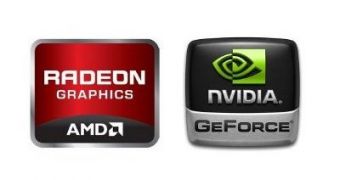It appears that the flaw found in Intel's chipsets will have more far-reaching consequences than one would have perhaps expected, as the recall and halt of notebooks will lead to weaker sales of all sorts of hardware, like discrete graphics cards.
Some time ago, as many end-users are no doubt aware, Intel found a particularly troublesome design flaw in its 6-Series Cougar point chipsets.
The flaw led to degradation of SATA 3.0 Gbps ports over time and prompted virtually every maker of motherboard and notebooks to recall sold products, in addition to stopping sales of those left.
Unfortunately, it seems that this move will have a great impact on the notebook market, and with many Sandy Bridge laptops featuring discrete GPUs, makers of video solutions will be affected as well.
Granted, those that deal in the actual motherboards and mobile PCs will have to deal with the most problems, but it is likely that NVIDIA and AMD's discrete graphics units will suffer their own share of financial losses.
As end-users know, Sandy Bridge processors have their own integrated graphics, but they aren't equipped to deal with more than multimedia and web browsing.
When it comes to games or image/video editing or such things, discrete GPUs are mandatory, meaning that quite a few Sandy bridge laptops were given Radeon or GeForce boards.
No actual numbers have been found at this point, but it is fairly certain that the first quarter of 2011 will end with less than favorable financial results for everyone involved in notebook discrete graphics.
Ironically, only AMD-powered laptops will escape the phenomenon unaffected, although an ever bigger irony lies in the fact that the Sunnyvale, California-based company doesn't have mainstream and high-end Fusion APUs capable of filling the newly formed vacuum, meaning that it doesn't power many machines that could use its own high-end graphics either.
No doubt companies dealing in memory products, storage devices and even software, Microsoft included, will have to cope with their own share of complications.

 14 DAY TRIAL //
14 DAY TRIAL //